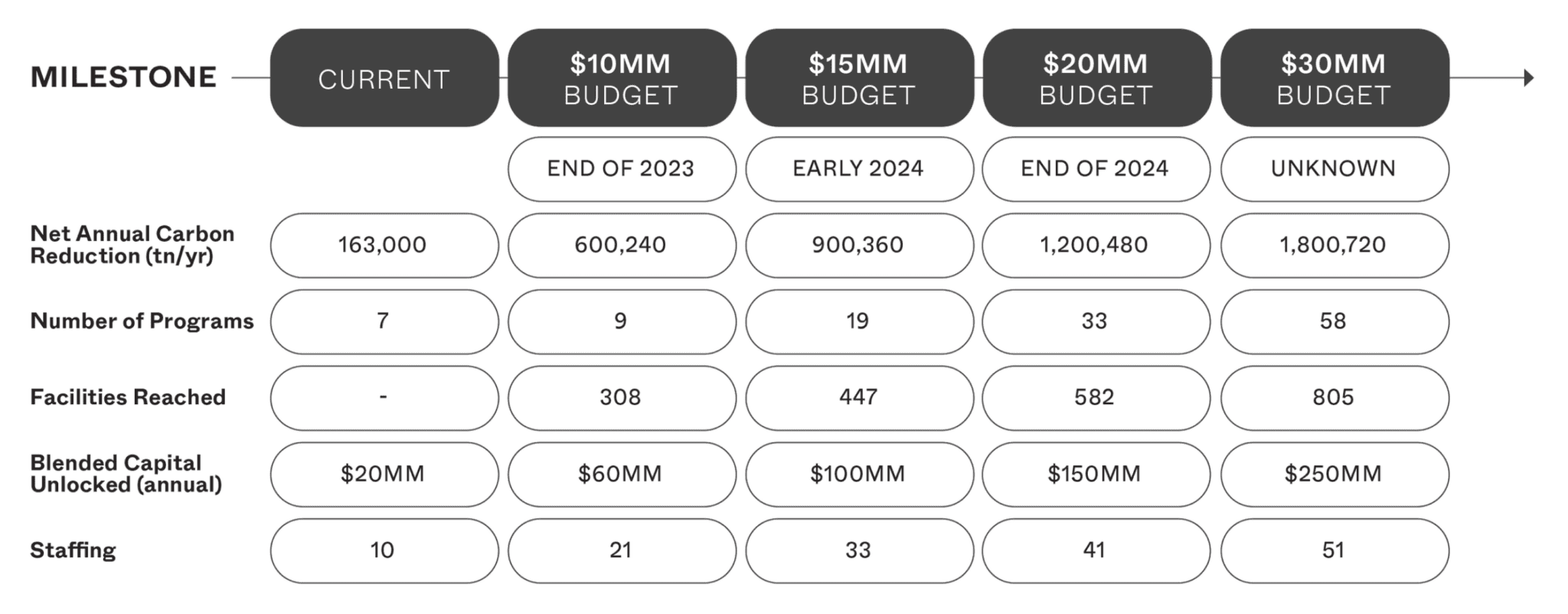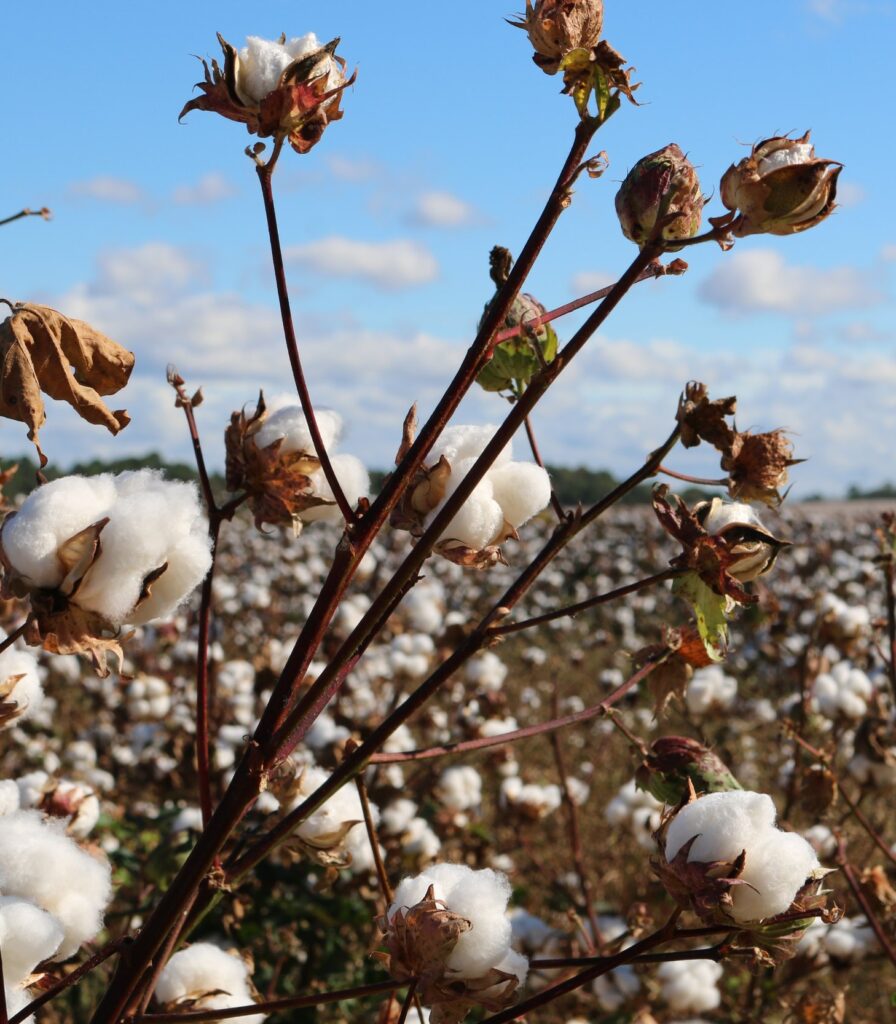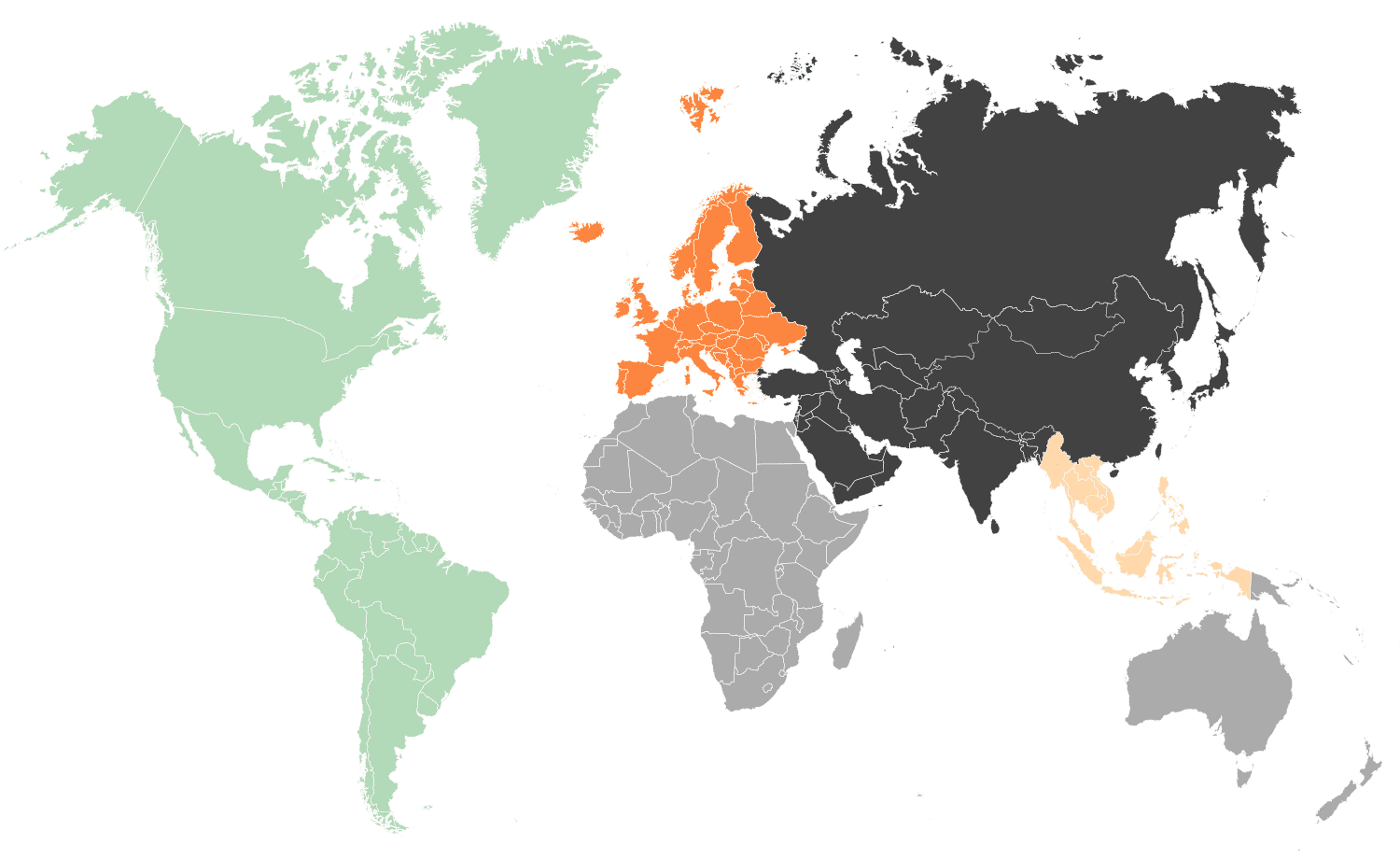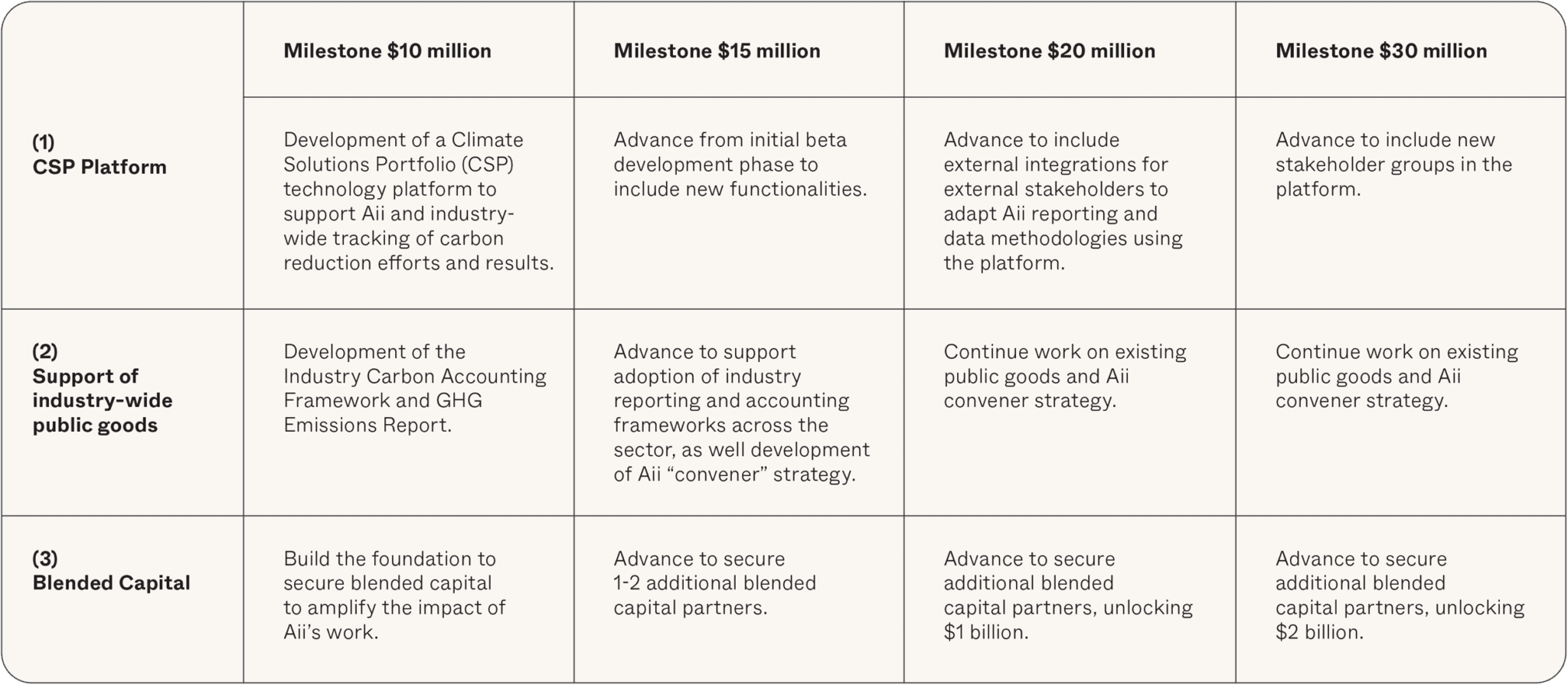
Both now and in future forecasts, Aii’s budget has been designed to achieve its overarching goal of maximizing carbon reduction. This is achieved by supporting innovative programs to reduce carbon emissions in different stages of the apparel manufacturing supply chain and strengthening stakeholder buy-in/engagement for carbon reduction in this industry as part of its ecosystem leadership work.
The organization’s budget is designed to optimize results in these two key areas (programs and ecosystem leadership) with the necessary management and administration support to provide a strong backbone for Aii’s ambitious goals.
Across Aii’s current and future milestone budgets, the organization targets a split across Programs, Ecosystem Leadership, and Management and Administration functions areas of 60, 25, and 15 percent respectively.
To achieve its strategic goals, Aii uses an annual Objectives & Key Results (OKRs) framework for internal goal setting and accountability. Each key result is further divided into activities or initiatives designed to contribute to this result, with measurable targets and responsible staff member(s) assigned. Aii’s approach to OKRs creates a concrete link between the larger-scale goals that the organization seeks to achieve, the human resources needed to achieve these goals, and the responsibilities of individual team members in contributing to Aii’s goals.
In 2023 we will review updates to industry target setting in response to the Fashion Industry Charter for Climate Action and will align our programs accordingly. [source]
At the end of 2022, Aii’s experts projected that by implementing actions such as metering systems, enhanced maintenance practices or reduced leaks in compressor air systems, a factory in the Clean by Design program could save an average of 37,135 Mjoule of energy and more than 4,741 tons of CO2e.

Recognizing we need to focus our efforts on regions that have the most significant carbon reduction potential for the apparel industry, we are expanding our programming to Mainland China, Bangladesh, Vietnam, and India. We are also exploring the significant opportunities in the textile sourcing hubs with the highest GHG emissions.
Aii will continue to advise the 65 factories that have set carbon reduction action plans by enhancing the factories’ capability to monitor their carbon emission and providing implementation guidance as needed. Driven by the action plans, Aii will link factories to the appropriate Impact Program to accelerate impact while also driving standardization of Aii’s GHG emission monitoring and reporting framework globally.
Through the CSP we aim to bring further new solutions aimed at renewable energy transition, materials efficiency and thermal energy to manufacturers.
Although programming has historically been driven through brand partnerships, Aii has recognized an increased interest by factories to work with us directly. To support this growth, we’ve hired a Manager of Manufacturing Engagement to actively cultivate these relationships.
In addition, we’ve hired a Manager of Stakeholder Engagement to strengthen relationships with key stakeholders. An example of this work is a collaboration with the International Apparel Federation (IAF) — the world’s leading federation for apparel manufacturers, (SME) brands, their associations, and the supporting industry. This is an important step to bring Aii programs to IAF’s members from more than 40 countries that directly and indirectly represent over 100,000 companies and 20 million employees.
In 2022, Aii launched an initiative with Ren — an organization that develops tools that empower organizations to decarbonize their supply chains — with the objective to explore opportunities for aggregated clean energy procurement in Taiwan, Province of China. Ren solves the complex financial, technical, and logistical challenges associated with sourcing renewable energy to cover supply chain emissions, unlocking cost savings and the ability to meet carbon commitments on time.
Together, Ren and Aii are taking collective action across three flagship brands to make their supply chains renewable. The pilot program will be launched in early 2023.
Aii and IAF will spend 2023 working alongside local associations in Bangladesh, a country with significant CO2e saving potential, to deploy carbon target setting and impact programs directly to manufacturers.
We’re onboarding a Regional Lead for Southeast Asia in mid-2023 to oversee and refine the continuously evolving programmatic work in the region. An example of this work is the localized Clean by Design Program Aii launched in Indonesia in 2022 and expanded by evaluating opportunities for rooftop solar installations.
In the US, we will continue recruiting Tier 1 and Tier 2 facilities to participate in our Clean by Design program to reduce energy consumption and carbon emissions. We are expanding relationships in the greater L.A. market to identify the textile sector’s needs and how Aii can best convene stakeholders to drive impact. We have begun discussions around the potential intervention areas of Renewable Energy, Circularity and Sustainable Design principles.
Italy produces some of the finest and most exclusive fashion products, making it a strategic sourcing country for high premium and luxury brands.
2022 was a year that disrupted the global energy market and brought an unprecedentedly high inflation rate, placing Italian manufacturers under tremendous financial pressures. With the climate crisis calling for decarbonization and manufacturers calling for cost savings, an opportunity emerged: drive operational savings from energy efficiency, low carbon manufacturing and switching to renewable energy.
The achievements of those programs demonstrate the huge potential for saving along the Italian value chain. The country has the capacity to pave the way in the decarbonization path — the most innovative carbon solutions are available in this country and they can accelerate the carbon transition worldwide.
To unlock this potential and support manufacturers, Aii will employ a locally-based Regional Lead, Italy, who will collaborate with leading Italian experts to develop a localized pathway towards decarbonization. Heritage manufacturers in Italy have different needs than mass manufacturers around the globe, and it is essential to identify and quantify Italian carbon reduction opportunities and required investments against 2030 targets.

In addition to direct support of programs, Aii amplifies its impact by engaging in several lines of work that are designed to strengthen the capacity and engagement of industry stakeholders to further the goal of reducing carbon emissions across the sector. Aii’s work to build ecosystem leadership centers on three key categories of results:
